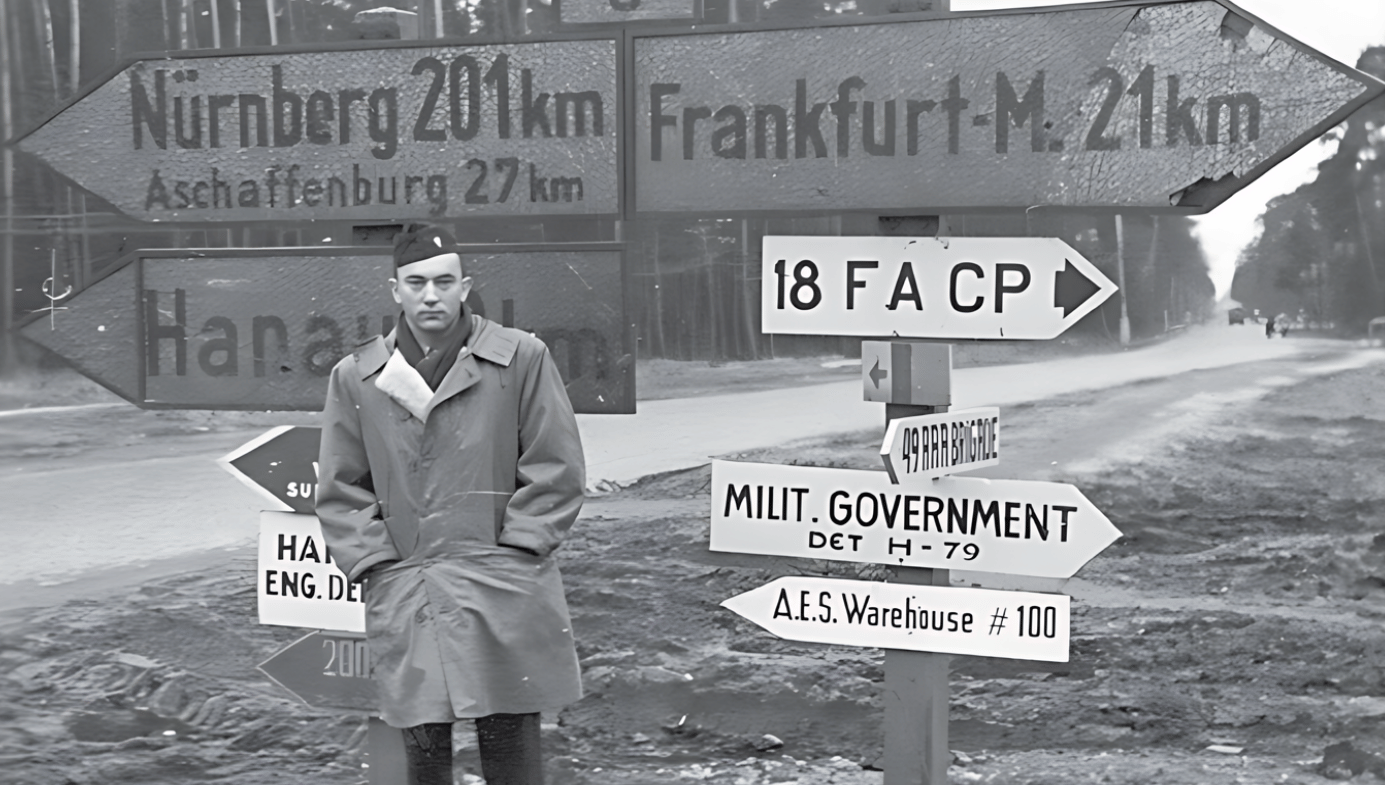Politics
Melvin Lasky: Diary of a Cold Warrior
Melvin Lasky was an indefatigable defender of the liberal spirit during the recovery of postwar Germany.

A review of The Diary of Lt. Melvin J. Lasky: Into Germany at the End of World War II by Charlotte A. Lerg (ed.), 342 pages, Berghahn Books (August 2024).
It is difficult to overstate the contribution to European culture made by Melvin Lasky’s journalism. But Lasky has suffered the fate of the editor, which is to be forgotten. Twenty years after his death, no Lasky biography exists, and only a short extract from his own memoirs has ever been published (it appeared in an issue of Saul Bellow’s short-lived literary journal News from the Republic of Letters, which is virtually unobtainable today).
Lasky’s diary was discovered among his belongings after he died in 2004, but only now—twenty years later—is it being published in an English paperback edition (it appeared in German translation in 2014), and by an academic imprint, not a mainstream one. As a result, it includes several essays by academics in the field of Cultural Cold War studies, so that readers unfamiliar with Lasky’s life and work can become acquainted with him before they get to his diary entries.
Lasky arrived in France in 1945 to chronicle the American advance into Western Germany as a 24-year-old “combat historian.” This was a less glamorous job than it sounds—in Lasky’s description, it involved compiling:
…the kind of truth which has devastated every element of a free spirit in the world, which has bureaucratized and corrupted speech, instinct, and conscience. This is our truth, which makes no one free, and enslaves no one so much as our poor selves.
Lasky was Jewish and firmly anti-totalitarian, but he possessed the intellectual independence to resist a monochromatic picture of the war. His diary displays his sensitivity to the suffering of ordinary Germans, and his horror at the devastation of their country by allied aerial bombardment, which he considered a crime against civilisation and a symptom of the generalised “moral atheism” of his times:
One loses in time one’s capacity for moral alarm. The barbarism is deep and everywhere, and no one any longer is able to recognize it. What a terrible wasteland this new war, more than anything else before, has uncovered.
The first city he came upon was Darmstadt, which had been destroyed in a single night in September 1944 by a bombing raid that claimed 15,000 lives:
Evening: the city of Darmstadt is beyond belief. … Every structure had been hit, and there were whole square blocks where everything had been razed. We must have gone miles, and it was hard to believe our eyes. An entire city was missing. … Night was falling, and we made our way forward in terrible wonder and with an expanding sense of horror.
The advanced date of the destruction of Darmstadt invites the question asked by British philosopher A.C. Grayling among others: did the destruction of entire cities actually influence the course of the War? Lasky made his feelings quite clear: “[O]ne of these days, I trust, the whole rotten mess of stupidity, ignorance, inadequacy, narrow-mindedness and barbarism, which inspired the aerial destruction of Germany, will be exposed.”





